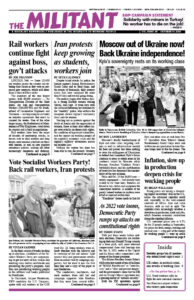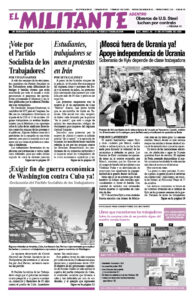Nine student groups at the University of California’s Berkeley School of Law adopted bylaws in August promoted by Law Students for Justice in Palestine that ban “speakers that have expressed and continued to hold views or host/sponsor/promote events in support of Zionism, the apartheid state of Israel, and the occupation of Palestine” at their activities.
After law school Dean Erwin Chemerinsky learned of the move, he sent a letter to student groups, saying “It is troubling to broadly exclude a particular viewpoint from being expressed. Indeed, taken literally, this would mean that I could not be invited to speak because I support the existence of Israel, though I condemn many of its policies.”
But the dean missed the main point. Yes, it’s a ban on free speech, but, more importantly, it’s a ban targeting Jews speaking on anything, since over 80% of Jews support the right of Israel to exist.
The ban sparked an outcry from opponents of antisemitism. The Jewish Journal published an article titled “Berkeley Develops Jewish-Free Zones,” by Kenneth Marcus, chairman of the Louis D. Brandeis Center for Human Rights Under Law, a Jewish civil rights group.
‘Zionist’ = Jew
“Anti-Zionism is flatly antisemitic,” Marcus wrote. “Using ‘Zionist’ as a euphemism for Jew is nothing more than a confidence trick.”
Chemerinsky backtracked, claiming the outcry by dozens of Jewish organizations and others is a “misguided furor” based on “misleading” news reports. He says it’s a “narrative” aimed at falsely portraying universities and especially Berkeley as anti-Semitic. He pointed to recent programs with Jewish and Israeli speakers on campus.
But the point is that Jew-hatred under the guise of “woke” cancel culture has been rearing its ugly head across the country, while university officials claim there’s nothing to worry about.
For example, in August two Jewish students at the State University of New York at New Paltz were booted from a support group for sexual assault victims after being told, “Zionists are not welcome.”
Dean Chemerinsky responded with greater vehemence to Marcus than he did to the new bylaws. He claimed that none of the groups have actually carried out the policy they adopted, and that if they did they would be subject to “sanctions.” And anyway, he asserted, once he voiced his opposition “the issue quickly faded at the Law School.”
Except that this isn’t true. It’s a cover-up. Law Students for Justice in Palestine fired off a letter responding to Chemerinsky. This time eight more student groups added their names to the call to ban supporters of Israel’s right to exist from speaking at the law school, bringing the total to 17.
Their reply to the dean states, “Free speech and the exchange of ideas cannot be romanticized when the byproduct of such rhetoric causes harm to marginalized communities.” To make it clear they were moving ahead with their censorship, the group organized a “Palestine 101 Training” session Sept. 21 aimed at promoting implementation of the bylaws.
The Brandeis Center’s Marcus wrote again Oct. 9, explaining the Berkeley groups are not “boycotting only Israel. They are boycotting American Jews.”

